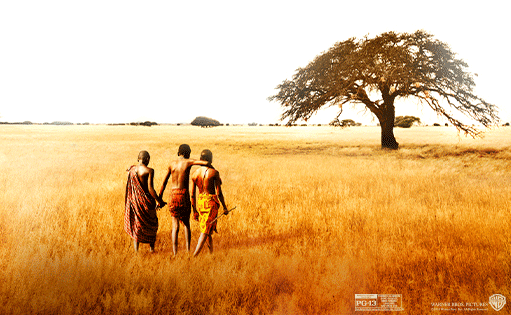The Bad Truth (The Good Lie)
I occasionally watch a movie I would never have seen if not for stumbling on it in the middle. The Good Lie is one of those. It is probably the most amusing film about a tragic disgrace to humanity I’ve ever seen, and I highly recommend it on every scale.
The film is a fictional account of three Lost Boys of the Sudan (the name given to the thousands of refugees from the Second Sudanese Civil War). It covers their escape from their home village, the trek east (toward Ethiopia) then south (to Kenya), a snapshot of life in a refugee camp, and ultimately their relocation to the United States.
The first act of the film is soul crushing. As children, they endure the abject inhumanity of war, but they do it with a complete understanding of death. They survive in a wilderness that would challenge extreme sport adventurer types, and they lose members of their group all along the way. They demonstrate resolve, stealing kills from a lion, hiding from soldiers, and (at an especially low point) drinking their own urine with the mantra, “I don’t want to die. I want to live.”
The refugees spent thirteen years in a camp. The film moves through this quickly as a sort of intra-act, advancing the characters to their adult selves. The movie takes a turn for the humorous when the main three boys and their sister find their names on the list to be relocated.
It becomes a fish out of water story as the African survivors are thrust into the wasteful abundance of the United States. Written and performed to American audiences, the film makes some good points of demonstrating ignorance without stupidity on the part of the boys. Here there are some genuinely humorous and touching moments. Such as the declaration, “Since we don’t know your birthday, you will be assigned January first.” To which the refugee asks, “Why this date?”
“There will always be a party.”
There is plenty of stupidity on the part of “the system.” The characters and precise details are fictional, but the story and situations are all too true. It is also conveyed with an intellectual honesty. There is no particular villain. There are a few helpful people, but none of them is especially heroic. We learn in the closing titles that two of the actors playing the main trio are actually relocated Sudanese refugees and former child soldiers. (The film does not cover the atrocity that is child soldiers.)
The title is derived from the final moments of the main story and a reference to Huckleberry Finn. A main character lies to protect someone worthy of his risk. It is not an unexpected turn, but it is meaningful all the same.
If you are not familiar with the Lost Boys of Sudan, I recommend this film with the knowledge that the story is inspired by actual events. In fact, I generally recommend this film whatever your background.